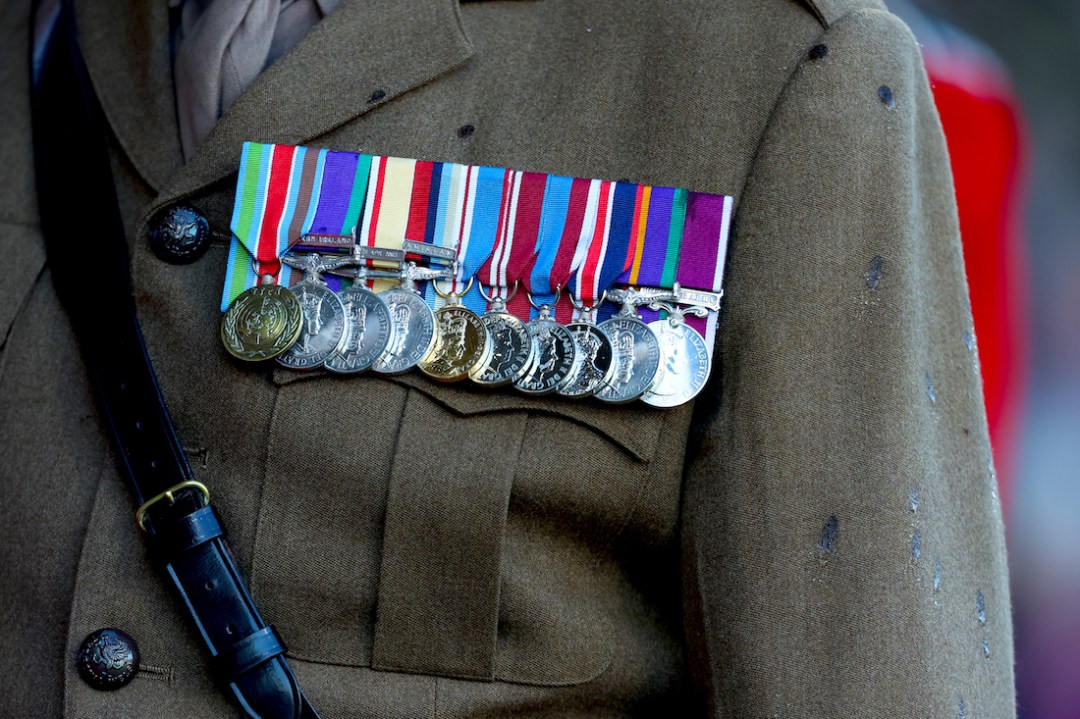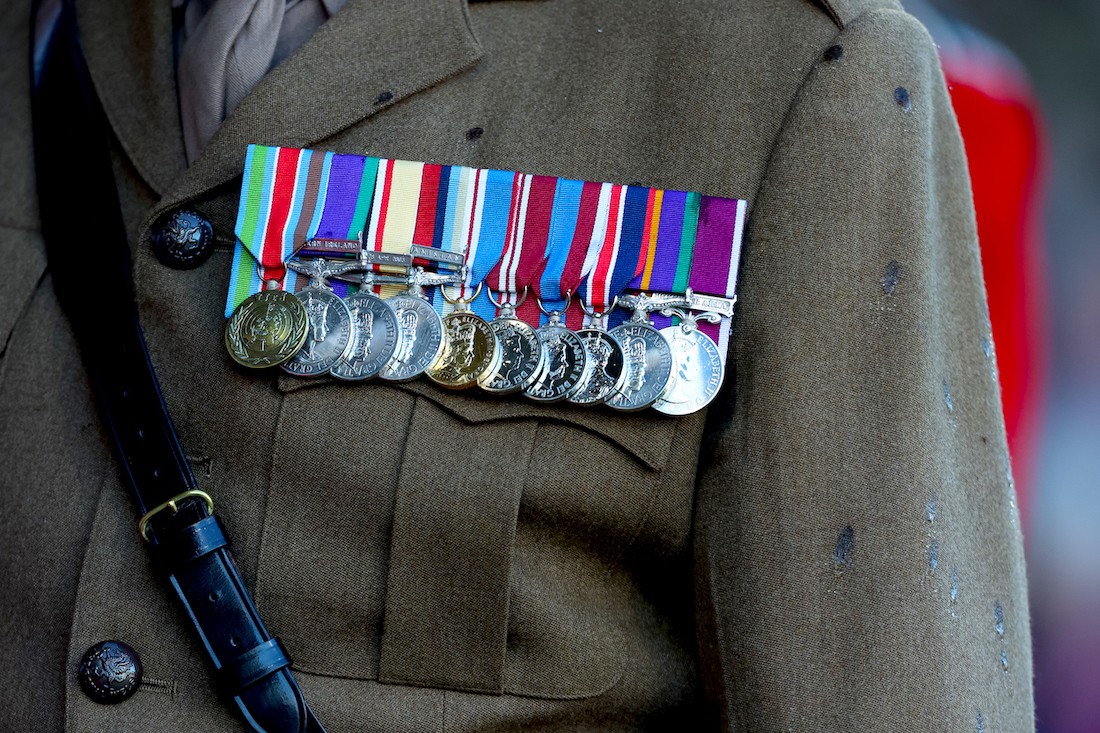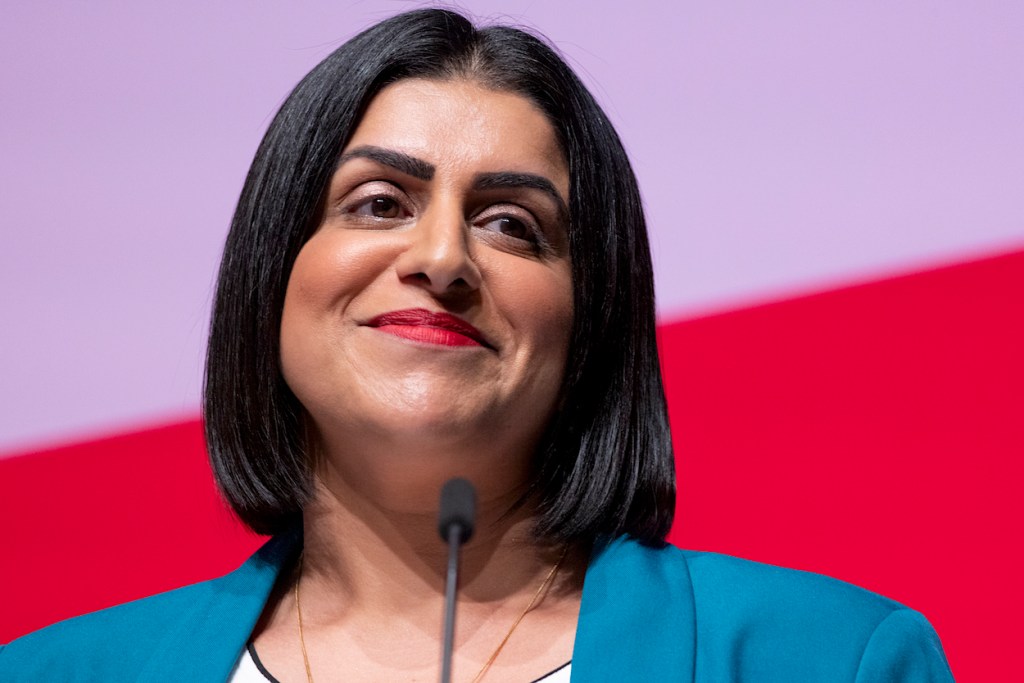Next month Jonathan Carley will appear in court in Carmarthen, charged with wearing military uniform without permission. This charge comes after a man purporting to be a Rear Admiral was pictured at a Remembrance Sunday service in Llandudno while wearing an impressive row of medals. One was Britain’s highest awards for gallantry – a Distinguished Service Order.
This case of alleged ‘stolen valour’ highlights an odd loophole in the law. While it is illegal to wear military uniform if not serving in the armed forces, there is no current criminal sanction for wearing unearned medals. A previous legislative attempt to deal with this issue failed. Parliament should act again.
Stolen valour involves ‘falsely claiming military service, rank or medallic recognition’. Imposters fall into two main categories: those who have never served in the military, colloquially known as Walter Mittys (or Walts), and real veterans who exaggerate their service, known as bloaters. Other printable terms include ‘fake warriors’, ‘military phonies’, ‘medal cheats’ and ‘military posers’. The internet has made access by imposters to medals and militaria easier. Their exposure has become more common with the growth of social media.
Motivations for this behaviour are complicated and at times sad. Some individuals seek personal gain to impress employers, achieve promotion, or solicit charity donation. Others desire social standing, exploiting the public’s respect for those who have served. Individuals have sought refuge from bullying, loneliness or to impress a younger wife. Boastfulness also plays its part.
These behaviours have long been of public concern. In 1894 an act of parliament restricted the fraudulent wearing of uniforms by ‘sandwich-men for advertising purposes, and also by vagrants.’ MPs were particularly exercised by a mountebank clerk who, ‘knowing the effect a military uniform had on the fair sex, approached the lady in an officer’s uniform,’ and was ‘accepted’.
Following the first world war, the United Kingdom and its allies placed similar protections on the ‘unauthorised and deceitful’ use of medals. Churchill, then secretary of war, told parliament that these ‘emblems of gallantry are prized by the country’. They had to be protected ‘so that the men [who won the medals] will be all the more proud of the right to wear them, and will not be misled by others who profit by use of these decorations.’
The 1894 ban on wearing uniforms remains in force. The ban on wearing false medals oddly lapsed in 2006 when previous legal provision wasn’t carried over to a new statute to regulate tri-service law. This left the UK seriously out of step with most of its Nato allies, and with Australia, Canada and New Zealand. Incidents involving significant financial gain fall within the ambit of the Fraud Act, but many don’t and go unpunished.
In 2017, a private member’s bill to sort this out cleared all Parliamentary hurdles, only to fall at the last as a result of Theresa May’s catastrophic decision to call a general election. This bill would have targeted those who set out to deceive by wearing fake gallantry and campaign medals normally awarded for operations ‘that involve a danger to life from enemy action.’
The bill was not without problems; it didn’t cover UN or Nato operations, foreign, reservist or non-operational medals, the wearing of fake badges, insignia and headwear, the fraudulent use of post nominals, nor those medals awarded for meritorious service (such as my own). But it would have rectified the 2006 mistake, strengthened the arm of the police, and could have been tweaked further.
MPs have noted a ‘continuing problem with military imposters.’ Service charities and veterans’ groups report the same. Following the dismissal last year of a senior police officer after he was found to have worn a fake Falklands War medal and embellished his CV, the Prime Minister said ‘stolen valour is really serious. It really impacts those who have served, it impacts all of us, but particularly those of us who have served… Do I think there should be sanctions? Yes, I do.’
Cosplaying at remembrance events insults the memory of the fallen
Starmer was right. Although I share concerns about the risk of vigilantism towards the pitiful, stolen valour – even without direct personal gain – causes genuine distress. It devalues the military honours system, leading to genuine medal winners or those with unusual service histories being challenged. It erodes trust within the veterans’ community. Alleged cosplaying at remembrance events insults the memory of the fallen and is not victimless.
One person who will have his own views about all this and can do something about it is the Minister of the Armed Forces, former Royal Marine Colonel Al Carns, winner of both the DSO for ‘gallant and distinguished services in the field’ and the Military Cross. Carns spoke passionately recently about what Remembrance means to him personally and as a ‘collective tribute to those who are serving and who have served,’ and his own work to support veterans.
Medals and their abuse is a hugely emotive subject. The scope of any legislation and its enforcement is tricky and won’t stop all incidents of stolen valour. Existing laws already catch the worst offenders. But action now would align the UK with its allies, reflect public opprobrium, and deliver on Starmer’s agreement that there should be strengthened sanctions.
It’s time to dust off the ‘oven ready’ cross-party bill from 2017 to help deter the impersonators.








Comments